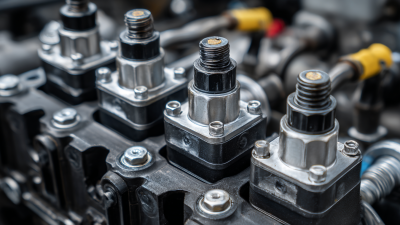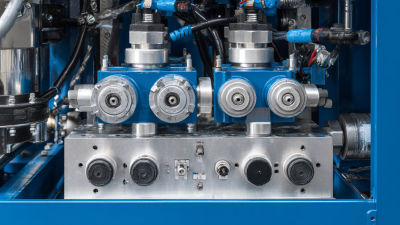- Home
- A-Z Catalogue
- Products
- Valves
- Cetop
- Manual Directional Valves
- Proportional Valves
- Poppet Valves
- High-Speed Linear Servo Valves
- All High-Speed Linear Servo Valves
- Cetop 10 (NG32) Two Stage Type High Speed Linear Servo Valves – LSVHG-10
- Cetop 10 (NG32) Two Stage Type High Speed Linear Servo Valves – LSVHG-10 (With Fail-Safe)
- Cetop 8 (NG25) Two Stage Type High Speed Linear Servo Valves – LSVHG-06
- Cetop 8 (NG25) Two Stage Type High Speed Linear Servo Valves – LSVHG-06 (With Fail-Safe)
- Cetop 7 (NG16) Two Stage Type High Speed Linear Servo Valves – LSVHG-04
- Cetop 7 (NG16) Two Stage Type High Speed Linear Servo Valves – LSVHG-04 (With Fail-Safe)
- Cetop 5 (NG10) Direct Type High Speed Linear Servo Valves – LSVG-03
- Cetop 5 (NG10) OBE Type Direct Operated Linear Servo Valves – LSVG-03-EH
- Cetop 3 (NG6) OBE Type Direct Operated Linear Servo Valves – LSVG-01-EH
- Pumps
- Pressure control
- Flow Control Valves
- Pressure Control Valves
- All Pressure Control Valves
- Brake Valves
- Direct Relief Valve
- Low Noise Solenoid Controlled Relief Valves
- Low Noise Pilot Operated Relief Valves
- Pilot Operated Relief Valves
- Pressure reducing and relieving valves
- Pressure reducing and check valves
- Pressure control valves
- Remote Control Relief Valves
- Solenoid Controlled Relief Valves – BSG
- Solenoid Controlled Relief Valves – BST
- Unloading relief valves
- Check valves
- Environmental
- Valves
- Hydraulic Systems
- Power pack
- About Us
- Contact
- Blog
Why Hydraulic Flow Control Valves are Essential for Optimizing System Performance: Insights and Data
 In the realm of hydraulic systems, the efficiency and reliability of operations hinge significantly on the proper management of fluid flow. Hydraulic flow control valves serve as crucial components that ensure optimal system performance by regulating the flow rate and pressure of hydraulic fluids. According to John Smith, a leading expert in hydraulic engineering, “The precision of a hydraulic flow control valve is fundamental to achieving desired performance and operational efficiency.” His insights highlight the pivotal role that these valves play in enhancing system responsiveness and functionality.
In the realm of hydraulic systems, the efficiency and reliability of operations hinge significantly on the proper management of fluid flow. Hydraulic flow control valves serve as crucial components that ensure optimal system performance by regulating the flow rate and pressure of hydraulic fluids. According to John Smith, a leading expert in hydraulic engineering, “The precision of a hydraulic flow control valve is fundamental to achieving desired performance and operational efficiency.” His insights highlight the pivotal role that these valves play in enhancing system responsiveness and functionality.
The significance of hydraulic flow control valves transcends mere functionality; they are instrumental in increasing the longevity of hydraulic components and minimizing energy waste. By fine-tuning the hydraulic flow, these valves enable systems to operate smoothly under varying loads and conditions. Furthermore, as industries strive for greater sustainability and efficiency, the implementation of advanced hydraulic flow control valves is becoming increasingly essential. Understanding their application not only empowers engineers to optimize performance but also drives innovation in system design and integration, ultimately leading to enhanced productivity and reduced operational costs.
Table of Contents
[Hide]
Understanding Hydraulic Flow Control Valves and Their Functionality
Hydraulic flow control valves play a crucial role in the functionality of hydraulic systems by managing the flow and pressure of the hydraulic fluid. These valves are designed to adjust the fluid flow rate, allowing for precise control over the speed and force of hydraulic actuators such as cylinders and motors. By regulating the flow, these valves help maintain optimal system performance, ensuring that machinery operates efficiently and effectively.

In essence, hydraulic flow control valves function by varying the size of the passage through which the hydraulic fluid flows. This can be achieved through various mechanisms, including throttling or directing the flow to specific components. The efficient operation of these valves is essential not only for the responsiveness of hydraulic systems but also for prolonging the lifespan of equipment. By mitigating issues related to pressure spikes or fluid turbulence, hydraulic flow control valves contribute to a smoother operation and minimize wear and tear on hydraulic components.
Key Benefits of Utilizing Hydraulic Flow Control Valves in Systems
Hydraulic flow control valves play a pivotal role in enhancing the efficiency and performance of hydraulic systems. According to a report from the International Fluid Power Society (IFPS), integrating flow control valves can lead to a 15-25% increase in the operational efficiency of hydraulic systems. This improvement is attributed to the ability of these valves to precisely regulate the flow rate and pressure, optimizing the energy consumption and ensuring the system operates within its optimal range.
The benefits of utilizing hydraulic flow control valves extend beyond mere efficiency boosts. Data from the Hydraulic Institute indicates that proper flow control can significantly reduce wear and tear on hydraulic components, leading to a 30% reduction in maintenance costs over time. Furthermore, flow control valves enhance the responsiveness of hydraulic systems, providing operators with finer control over speed and movement. This level of precision not only improves productivity but also enhances safety in industrial applications, as systems can be tailored to respond to varying load conditions effectively.
Data-Driven Insights on Flow Control Valve Performance and Efficiency
Hydraulic flow control valves play a crucial role in optimizing system performance by regulating fluid flow and pressure, enhancing efficiency across various applications. According to a recent report by the International Society for Automation, effective flow control can improve system efficiency by up to 30%, demonstrating the significant impact of these components on operational capabilities. When properly calibrated, these valves not only maintain desired flow rates but also contribute to reduced energy consumption and extended equipment lifespan.
Data from the Fluid Power Journal highlights that systems employing advanced flow control valves experience a 25% reduction in energy costs compared to those using basic models. Moreover, incorporating electronically controlled valves allows for real-time adjustments, ensuring optimal performance under varying operational conditions. This adaptability is vital, especially in industries like manufacturing and construction, where hydraulic systems face dynamic demands. As industry standards continue to emphasize sustainability and cost-effectiveness, understanding and implementing efficient flow control solutions is essential for maintaining competitive advantage and achieving long-term success.
Why Hydraulic Flow Control Valves are Essential for Optimizing System Performance
| Valve Type | Flow Rate (L/min) | Pressure Drop (bar) | Efficiency (%) | Application |
|---|---|---|---|---|
| Directional Control Valve | 50 | 1.5 | 90 | Manufacturing |
| Pressure Relief Valve | 30 | 0.8 | 85 | Safety Systems |
| Flow Control Valve | 70 | 1.2 | 92 | Mobile Equipment |
| Check Valve | 100 | 0.5 | 88 | Pipelines |
| Flow Metering Valve | 40 | 0.3 | 95 | Energy Sector |
Practical Tips for Selecting the Right Hydraulic Flow Control Valve
When selecting hydraulic flow control valves, several factors must be considered to ensure optimal system performance. Flow control valves play a critical role in maintaining the desired flow rate and pressure, which directly affects the efficiency of hydraulic systems. According to industry reports, improper valve selection can lead to an estimated 15-25% drop in system efficiency. Therefore, understanding the specific application requirements, including pressure ratings and flow characteristics, is essential.
In addition to identifying the correct specifications, considering the operational environment is crucial. Factors such as temperature, fluid type, and potential contaminants can impact the performance of the valve. For example, using valves designed for high-viscosity fluids in systems with low-viscosity fluids can result in erratic flow control. Furthermore, proper installation and maintenance practices are imperative. Regular inspections and adherence to best practices can enhance the longevity of the valves, with studies indicating that well-maintained systems can achieve a 20% increase in operational lifespan. By prioritizing careful selection and robust maintenance strategies, engineers can significantly improve hydraulic system performance and reliability.
Hydraulic Flow Control Valves Performance Analysis
This chart illustrates the flow rates of different hydraulic flow control valves, highlighting their performance in liters per minute. Understanding these metrics is crucial for optimizing system performance and selecting the right valve for specific applications.
Common Challenges in Hydraulic Systems and How Valves Address Them
Hydraulic systems are integral to many industrial applications, yet they often face challenges such as pressure fluctuations, inefficient fluid flow, and system wear. According to a report by The Hydraulic Institute, approximately 25% of hydraulic system failures stem from improper flow management, leading to excessive downtime and costly repairs. Hydraulic flow control valves are essential in mitigating these issues by precisely regulating fluid flow, maintaining optimal pressure, and enhancing overall efficiency.
Efficient flow control can dramatically improve system performance. For instance, implementing high-performance hydraulic valves can lead to a 15-20% increase in energy efficiency, as highlighted in a study by the International Society for Automation. These valves are designed to adapt to varying operational conditions, reducing the risk of cavitation and minimizing system wear, thereby extending the lifespan of hydraulic components.
**Tips:** Regularly inspect and maintain hydraulic flow control valves to ensure they are functioning correctly. Implementing smart monitoring systems can allow for real-time tracking of flow rates and pressures, enabling proactive maintenance. Additionally, consider investing in advanced valve technology that can enhance responsiveness and adaptability in dynamic operating environments.

Related Posts
-

Exploring the Benefits of Yuken Directional Valves for Enhanced Hydraulic Performance
-

Understanding the Importance of Hydraulic Flow Control Valves in Modern Industrial Applications
-

Understanding Yuken Directional Valves and Their Applications in Modern Hydraulic Systems
-

The Essential Guide to Understanding Hydraulic Power Packs in Industrial Applications
-

Exploring the Benefits of Advanced Hydraulic Directional Valves for Efficient Fluid Control
-

Understanding the Role of Hydraulic Valves in Modern Industrial Applications












